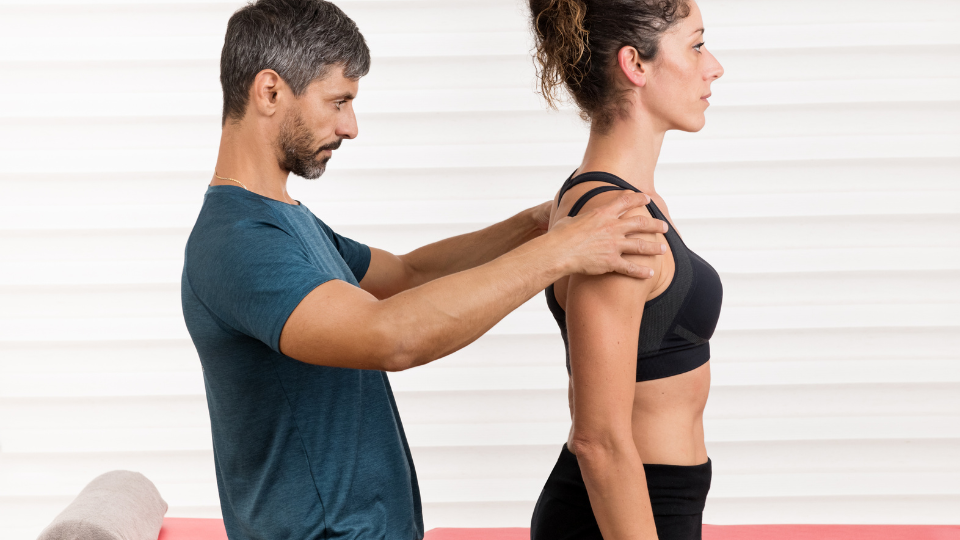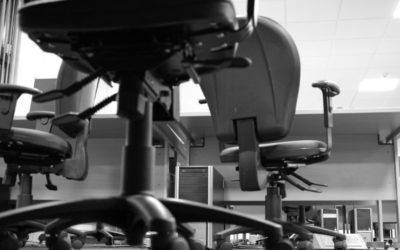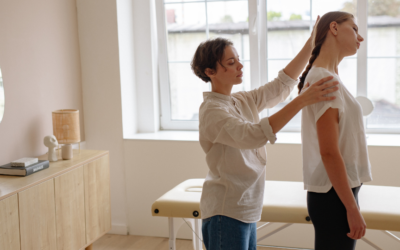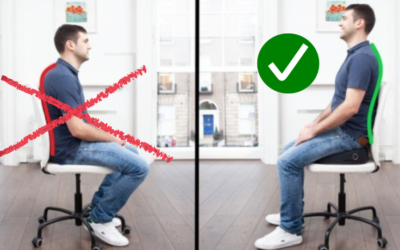Do you ever find yourself slouching in your chair at work, or hunching your shoulders forward when walking down the street? If so, don’t feel bad – it’s a very common problem. So, what causes you to slouch?
Truth is that slouching is a posture issue that can be caused by numerous factors including; poor sitting form, unhealthy lifestyle habits and even unconscious behaviors we may not even be aware of. In this blog post, we’ll look at why slouching occurs and how to reduce its impact on our health and well-being. We’ll also investigate what steps we can take to support our bodies better while standing and sitting.
As a general rule, slouching is a common posture issue caused by a combination of factors, including weak core muscles, prolonged sitting, poor posture habits, and physical or mental stress. To prevent slouching, focus on strengthening your core, taking breaks from prolonged sitting, and being mindful.
Unleash the power of perfect posture with a seasoned chiropractic expert boasting 30 years of hands-on experience and dual certifications as a posture specialist and ergonomist. My obsession with empowering people to sit and stand tall has skyrocketed my success, from a wildly successful Kickstarter campaign for my ergonomic seat cushion to the best-selling status of my posture book, and even captivating TV audiences with my posture expertise. Ready to transform your posture from slouch to standout? Look no further! I possess unparalleled knowledge and skills to guide you to posture perfection.
How to Stop Slouching When Sitting
As your chiropractor, I am always striving to help you keep the best posture possible. Posture is essential for a healthy spine and biomechanics.
- When sitting at a desk or in a chair for any length of time, it can be easy to start slouching; however, this can cause spinal misalignment and even chronic pain over time. Here are some tips on how to stop slouching when sitting:
- Adjust your seat so that your feet are flat on the floor with your knees unlocked. This will help ensure that all parts of your body are supported properly by the chair while providing adequate circulation.
- Make sure that your shoulders remain relaxed and down throughout the day. This will help maintain the correct spinal alignment while avoiding any unnecessary strain.
- Engage your core muscle group by tensing them for a few moments periodically throughout the day. This will help you maintain better posture and avoid fatigue from slouching.
- Make sure to take frequent breaks throughout the day and walk around as much as possible. Taking regular breaks is essential for preventing slouching and maintaining good biomechanics.
- My personal opinion is that the main reason for slouching is your foundation is off. Try an Ergonomic Seat Cushion as a simple fix!
Following these tips can help you prevent slouching when sitting, allowing you to enjoy greater mobility, improved posture, and fewer aches and pains in your spine over time.
Why Is Sitting up Straight So Uncomfortable?
Many people find sitting up straight to be uncomfortable and difficult; however, it is essential for keeping your spine in the correct alignment. When you are slouching, your muscles become tight and tense from being forced into an unnatural position. This can cause pain and discomfort over time due to increased stress on your spine, muscles, and joints.
When you sit up straight with good posture, however, your body is able to move freely without feeling any strain or tension. Your spine is also better supported and aligned correctly, reducing the potential for chronic aches and pains down the road.
By striving to sit up as straight as possible whenever possible (whether at a desk or elsewhere), you can reduce tension in your body and prevent any long-term issues due to bad posture. This is why many chiropractors, such as myself, recommend sitting up straight and making sure your body is properly supported at all times.
Slouching Effects
Slouching can have serious effects on both your spine and overall health. When you slouch, it throws off the alignment of your spine, leading to chronic pain over time. This is because the muscles and ligaments in your back are constantly strained as they fight against gravity to keep you upright.
In addition, poor posture can affect your breathing by placing additional strain on your diaphragm and lungs. Your organs such as the kidney, stomach, pancreas and intestines may also become compressed due to slouching; this can lead to digestive issues such as acid reflux or bloating.
It is important to maintain good posture while sitting down in order to avoid these issues. Make sure to keep your feet flat on the floor, shoulders relaxed and down, and core engaged for maximum spine support. Taking regular breaks throughout the day is also a great way to reduce any tension in your body from sitting too long in one position.
Exercises to Stop Slouching

In addition to making sure that you sit up straight, there are also a few exercises that can help reduce slouching.
Shoulder rolls: Sit up tall in your chair and roll your shoulders forward several times before rolling them back. This will help loosen tight muscles in the upper back which could be contributing to your slouching habit.
Thoracic extensions: Sit tall with your hands clasped behind your head and slowly arch backwards until you feel a slight stretch. Hold this position for 30 seconds and then return to an upright position.
Postural stretches: Stand up straight with your arms above your head, and palms together. Bend at the waist and reach towards the floor as far as you can, holding the position for a few seconds. Repeat this several times to help loosen up your postural muscles and promote better posture.
Summary
In conclusion, slouching is a common posture issue caused by weak core muscles, prolonged sitting, poor posture habits, and physical or mental stress. Fortunately, there are several methods to prevent slouching from occurring. The most effective strategies include strengthening your core muscles, taking breaks from prolonged sitting, and being mindful of how you’re sitting. Having strong core muscles and taking more adequate breaks will be beneficial in the long run as well; not only will it help reduce current pain associated with slouching but also impact overall wellbeing. Therefore, practice good posture habits and make sure to incorporate these steps into your daily routines!








